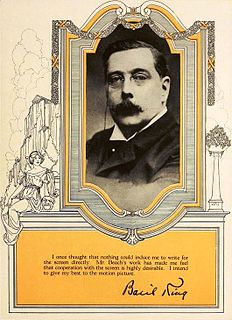A Quote by Graham Kendrick
My Lord, what love is this that pays so dearly. That I, the guilty one, may go free!
Related Quotes
In doing one's work primarily for God, the fear of undue restriction is put, sooner or later, out of the question. He pays me and He pays me well. He pays me and He will not fail to pay me. He pays me not merely for the rule of thumb task, which is all that men recognize, but to everything else I bring to my job in the way of industry, good intentions and cheerfulness. If the Lord loveth a cheerful giver, as St. Paul says, we may depend upon it that He loveth a cheerful worker; and where we can cleave the way to His love there we find His endless generosity.
So you think that you're a failure, do you? Well, you probably are. What's wrong with that? In the first place, if you've any sense at all you must have learned by now that we pay just as dearly for our triumphs as we do for our defeats. Go ahead and fail. But fail with wit, fail with grace, fail with style. A mediocre failure is as insufferable as a mediocre success. Embrace failure! Seek it out. Learn to love it. That may be the only way any of us will ever be free.
I am no king, and I am no lord, And I am no soldier at-arms," said he. "I'm none but a harper, and a very poor harper, That am come hither to wed with ye." "If you were a lord, you should be my lord, And the same if you were a thief," said she. "And if you are a harper, you shall be my harper, For it makes no matter to me, to me, For it makes no matter to me." "But what if it prove that I am no harper? That I lied for your love most monstrously?" "Why, then I'll teach you to play and sing, For I dearly love a good harp," said she.
We don't go to Sabbath meetings to be entertained or even solely
to be instructed. We go to worship the Lord. It is an individual
responsibility, and regardless of what is said from the pulpit, if one
wishes to worship the Lord in spirit and truth, he may do so by
attending his meetings, partaking of the sacrament, and
contemplating the beauties of the gospel If the service is a
failure to you, you have failed. No one can worship for you. You
must do your own waiting upon the Lord.
The pavilion that seems to be hiding you from God may be fear of man rather than this desire to serve others. The Savior's only motivation was to help people... I challenge you to go for the Lord to someone, despite any fear you may have, to extend love and forgiveness. I promise you that as you do, you will feel the love of the Savior for that person and His love for you, and it will not seem to come from a great distance.
Only love for the Supreme Lord is true Bhakti. Love for any other being, however great, is not Bhakti. The "Supreme Lord" here means Ishvara, the concept of which transcends what you in the West mean by the personal God. "He from whom this universe proceeds, in whom it rests, and to whom it returns, He is Ishvara, the Eternal, the Pure, the All-Merciful, the Almighty, the Ever-Free, the All-Knowing, the Teacher of all teachers, the Lord who of His own nature is inexpressible Love."
It is not our free will but 'it is the Lord who sets the captive free' (Ps. 145:7). It is not our own virtue but 'it is the Lord who lifts up those who were laid low' (Ps. 145:8). It is not application to reading but 'it is the Lord who gives light to the blind' (Ps. 145:8). It is not our cautiousness but 'it is the Lord who protects the stranger' (Ps. 145:9). It is not our endurance but 'it is the Lord who raises or gives support to the fallen' (Ps. 144:14).
The reason why some people love to engage in dangerous activities, such as mountain climbing, car racing, and so on, although they may not be aware of it, is that it forces them into the Now - that intensely alive state that is free of time, free of problems, free of thinking, free of the burden of the personality.




































